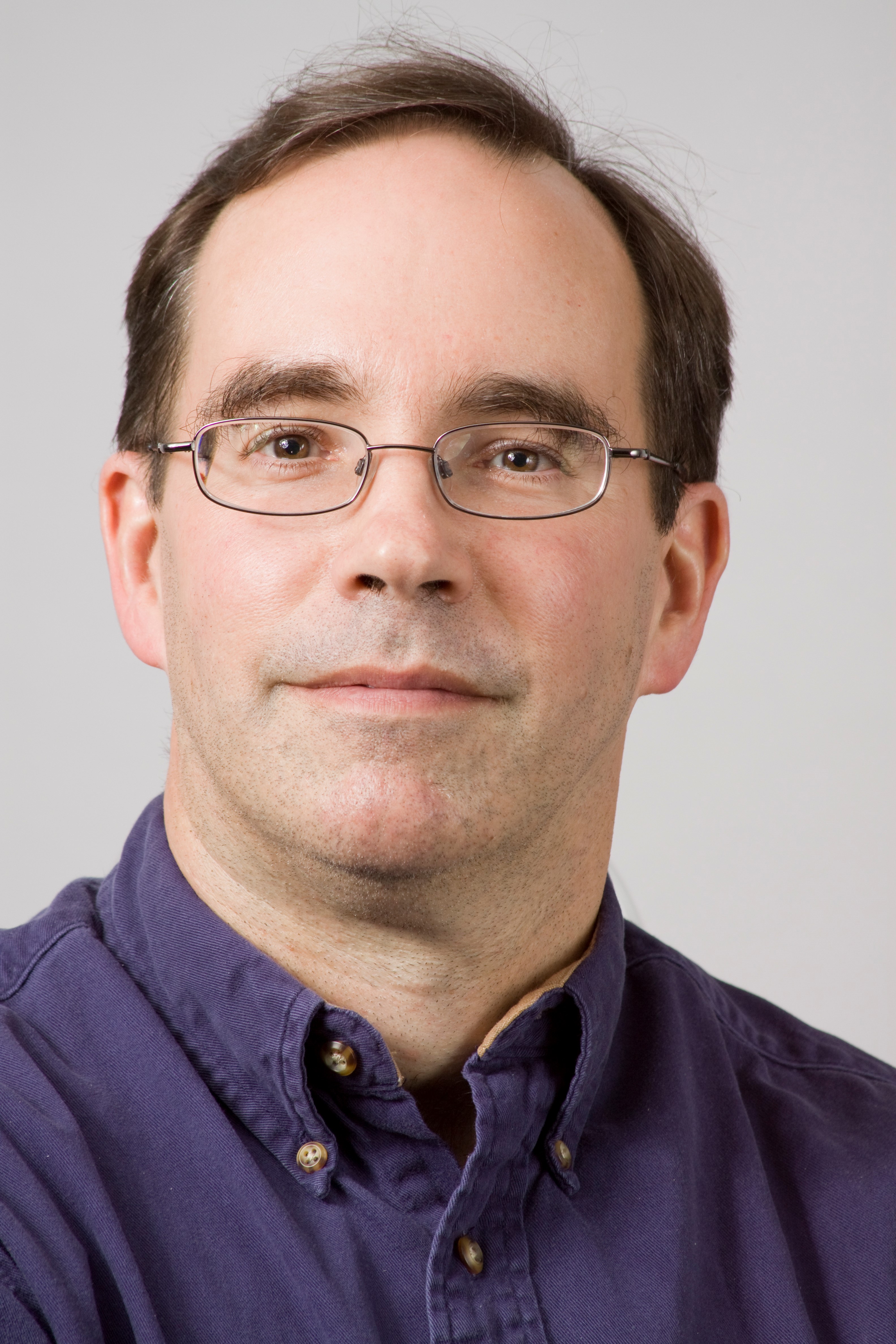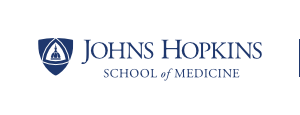JHSPH Alumni Profiles
Dr. Robert Jordan, PhD
 Dr. Robert Jordan is currently the Director of Virology at Vir Biotechnology, Inc. in San Francisco, California. Robert received his PhD in Biochemistry and Molecular Biology from the Johns Hopkins Bloomberg School of Public Health in 1992. Following a postdoctoral fellowship, Dr. Jordan was an assistant professor at University of Pennsylvania and later at Thomas Jefferson University. Dr. Jordan then moved to industry to develop therapeutics for treatment of viral infections. Among notable accomplishments, he co-discovered and developed an antiviral treatment for smallpox, called Tecovirimat during his time at Siga Technologies, which was recently approved by the FDA in 2018. Before joining Vir, he worked for seven years at Gilead Sciences as the Director of Biology working on antiviral therapies for treatment of respiratory viruses and emerging and neglected viruses. This work led to the discovery of Presatovir for treatment of respiratory syncytial virus (RSV) and Remdesivir, a broad-spectrum antiviral for treatment of pathogenic RNA viruses including Ebola, MERS-coronavirus, and Nipah virus. Both of these compounds are in clinical development.
Dr. Robert Jordan is currently the Director of Virology at Vir Biotechnology, Inc. in San Francisco, California. Robert received his PhD in Biochemistry and Molecular Biology from the Johns Hopkins Bloomberg School of Public Health in 1992. Following a postdoctoral fellowship, Dr. Jordan was an assistant professor at University of Pennsylvania and later at Thomas Jefferson University. Dr. Jordan then moved to industry to develop therapeutics for treatment of viral infections. Among notable accomplishments, he co-discovered and developed an antiviral treatment for smallpox, called Tecovirimat during his time at Siga Technologies, which was recently approved by the FDA in 2018. Before joining Vir, he worked for seven years at Gilead Sciences as the Director of Biology working on antiviral therapies for treatment of respiratory viruses and emerging and neglected viruses. This work led to the discovery of Presatovir for treatment of respiratory syncytial virus (RSV) and Remdesivir, a broad-spectrum antiviral for treatment of pathogenic RNA viruses including Ebola, MERS-coronavirus, and Nipah virus. Both of these compounds are in clinical development.
I had no clue that I would be doing what I’m doing now when I was in graduate school. When I started graduate school, I was really interested in my work and was very satisfied with academic research. I met my wife at Hopkins, and when it was time to continue my training as a postdoc, we were looking at places where we both could go together. I was interested in taking what I learned in my PhD in Biochemistry and applying it to more complicated virology problems. I joined a lab at Harvard studying herpesviruses (Priscilla Schaffer) and quickly found that the biology was so complex that it was difficult to study at the biochemical level. Priscilla taught me how to think like a biologist, an additional skill set that served me well in my career as a drug discovery scientist.
My initial plan was to study herpes viruses for the rest of my life. Following my postdoctoral training, I took a series of junior faculty positions, but I was not in the ideal spot for a young faculty member on a tenure track. A company called ViroPharma was located near my lab and I knew some of the scientists from the literature. I was surprised that this group would be conducting really good basic science research and also developing antiviral drugs. This company had just developed a drug for the common cold and had just filed a new drug application (NDA) with the FDA to market this compound. I invited the lead scientist on this project, who ended up being my boss, to give a seminar at our University. His presentation was different from anything I had ever seen in academia. This company saw projects from the basic science all the way to clinical trials. The work was very exciting to me, and soon after that seminar an opening came up at the company. It felt like a natural fit and, so I interviewed for the position and was offered the job.
It was a big transition career-wise. I liked academic science. My lab was funded, I was publishing papers, and I was getting good students. When I went to interview for the position at ViroPharma, the FDA had just decided not to approve their NDA application for the common cold drug. The company’s stock went down tremendously during this time, right as I was about to interview. I was expecting the atmosphere to be somber, but when I got there everyone was so excited about starting over. After losing everything, they were still excited about the work they were doing. I accepted the offer to join the company and within my first few weeks I was leading a group of highly qualified scientists discovering antiviral drugs for multiple indications. This was the first difference that surprised me was the quality of the work was exceptionally high. The scientists were very rigorous and knew how to design excellent experiments that provided actionable data. Having high quality colleagues in my group allowed me to think more strategically about science and programs. The collaborative research environment was also a big change. When I asked a colleague for help, there was never any hesitation, and people would put down their work to help solve a problem. The research team would celebrate new discoveries and everyone’s individual effort was always acknowledged. Effective communication skills were definitely an asset.
On the other hand, it was very product focused. Scientists develop goals that align with the company mission. If we made a discovery that led to an interesting research question that was not on the path to product development, it was harder to get resource to pursue this line of work. Overall, the industry research environment is highly collaborative and goal oriented and usually much better supported than in academia. The drawback is that you need to always keep in mind how your work fits with the company mission. Throughout my career in industry, I’ve seen high-quality researchers from postdoctoral positions in academia coming to do applied science. For certain research questions, this can be the best path to answer important questions in science. There are also people coming to industry that do well and then go back to academia. The lines between academia and industry continue to be blurred. You can do great science in both environments, and the choice really is personal and what makes sense to address a specific question.
Part of the work that I had done was in Biosecurity and had national security implications. Some of the grants and contracts for this work only allowed for US citizens. It was not impossible for international scientists to work on those projects, but extensive screening was required. All the companies that I’ve worked at support visas and they have the infrastructure to hire international students and scientists to recruit talent from all over the world.
Yes, hindsight and experience have taught me what works well. When I was a graduate student, anything outside of academia was discouraged and looked at as second rate. However, the most important thing that students do not realize is that the same level of scientific rigor applies to industry. When we look at candidates, we look at scientific credentials in addition to soft skills like their ability to communicate and manage people. You can be a brilliant scientist, but if you can’t describe your research to a scientist outside of your field, you will not be hired in industry. The job seminar is one of the most important parts of the interview process as well as the individual meetings with potential colleagues. Your scientific “brand” is important. What you publish in peer-reviewed journals, post online in forums or other platforms, and even how you present yourself on social media liked LinkedIn or ResearchGate is important. A strong publication record is helpful for industry. I continue to publish papers while in industry, but sometimes need to spend time at nights and weekends to complete this work. In addition, I still write grants and contracts to support my work in discovery science, but this is not usually the norm and not all companies encourage this type of activity. While you do not publish as often as in academia, your publication record is evidence of your productivity and is considered as part of your application. Establish your brand and decide how you want people to see you.
I was laid off from my first position in industry (ViroPharma) after a year and a half when the company ran out of money. I had a new baby and no job and nothing lined up. The best advice I got from the founder of ViroPharma was to wait for the right position and not to panic. After 3 months I had six offers which allowed me to direct my career path. Admittedly, it is very scary to not have something lined up when you are unexpectedly out of a job, but something always comes up if you are patient and spend your “free time” networking with colleagues, polishing your online profile and CV, talking to recruiters and preparing thoughtful cover letters for job applications. You have to keep an open mind and not be afraid to try something new.
What surprised me most in industry is how generous everyone has been with their time. It is a really special environment and collaboration is necessary since it takes a lot of expertise to develop a drug. The people I work with are willing to help because they are motivated by the idea of developing treatments for diseases that otherwise can have devastating consequences. Working in industry and science in general, has also allowed me to see the many similarities that exist among all scientists regardless of their backgrounds and ethnic origins. Science is a human language and we are all similar in many regards when it comes to our interest in the natural world.
Pay attention to your career. Your graduate and post-doc mentors will want you to work for them forever, but you are responsible for your own career and will be the one to decide when it’s time to move on and what path is best for you. Make sure the work that you’re doing is valuable to the scientific community. Set near term and long-term career goals and evaluate your progress every year. You may not land your dream job right out of your training, but don’t dismiss interim opportunities that can be leveraged to move you towards your ideal job. It is important to find the right balance between work and life. This equilibrium changes as your life changes. There is always the temptation to work more to get ahead in your career, but I have found that my life is much more fulfilling when I make time to spend with my family and participate in the community. Science is deeply personal for me and permeates my life, but does not get in the way of family and non-work activities. You have to decide on the right balance that fits your life-style.
Thank you again to Dr. Robert Jordan for his time in conducting this informational interview.
This interview was conducted by Sabrina Schatzman, a PhD candidate in the Department of Biochemistry and Molecular Biology, in collaboration with the Professional Development and Careers Office at the Johns Hopkins School of Medicine.
